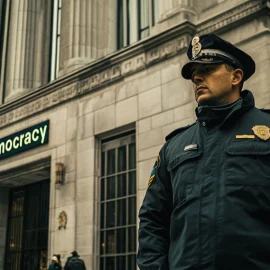
This is a free excerpt from one of Shortform’s Articles. We give you all the important information you need to know about current events and more.
Don't miss out on the whole story. Sign up for a free trial here .
Why is there a worker shortage? Is the news exaggerating the shortage?
The news surrounding the global worker shortage shows that demand is currently rising for goods and services, but many people who lost jobs during the pandemic are no longer seeking them. Because of the unique nature of this downturn in employment, there are many factors that might be holding people back from work.
Read on to learn why there is a worker shortage and why it could also just be a media myth.
Is the Worker Shortage Itself a Myth?
Why is there a worker shortage and is it as bad as they say? Some economists argue that despite companies’ protests, the labor shortage is somewhat illusory. They argue that if we were actually in a labor crisis, we’d see much higher wage increases—while wages for retail and hospitality workers have increased significantly (rising by 16.8% and 19.2% since April of 2021), wages for production, non-supervisory workers (the vast majority of workers), increased just 1.2% over that same time period.
Analysts on this side of the debate argue that in an economy as large and complex as ours, there will be pockets of labor shortages at any given time, and that in both good times and bad, some employers always say they can’t find enough workers.
They further note that the unemployment rate rose in April of 2021 to 6.4% (from 6.0% in March) because 430,000 people entered the labor force, indicating that the real problem is not a shortage of labor, but a dearth of decent jobs. To explain why there is a perceived worker shortage, they point to chronically low salaries and supply-chain problems, like the semiconductor chip shortage that’s forced production cuts in car factories, as stronger factors in the lower hiring rate in April.
Potential Causes
Could a lack of childcare be a contributing factor? Because businesses are opening while many schools remain closed, parents, particularly mothers, are running into childcare problems. (This may explain why the vast majority of people entering the workforce in April of last year were men.)
A lack of skilled workers could also be a reason why there is a worker shortage. Some people may lack the skills needed for jobs currently available. For example, commercial driving requires specialized driver’s licenses. The geography of jobs is also changing. To work at remote locations like warehouses or suburban restaurants, workers need cars to get there, unlike for positions in areas with accessible public transportation (like cities, airports, or shopping malls), which are seeing fewer openings.
Potential Benefits
Why is a worker shortage potentially a good thing? There are some benefits, according to analysts. Looking forward, whatever labor shortages do exist will soon lessen as vaccinations increase, schools reopen, and the world starts getting back to normal.
In the meantime, some argue that the economy might actually benefit in the long run from a temporarily tight market. Workers can leverage it to command better wages that will in turn spark more economic growth as they turn around and spend their additional earnings. And, if benefits take pressure off workers to accept the first job offer they get, allowing them to hold out for jobs that suit them better, they’ll be happier, more productive, more stable workers down the line.

Want to fast-track your learning? With Shortform, you’ll gain insights you won't find anywhere else .
Here's what you’ll get when you sign up for Shortform :
- Complicated ideas explained in simple and concise ways
- Smart analysis that connects what you’re reading to other key concepts
- Writing with zero fluff because we know how important your time is






